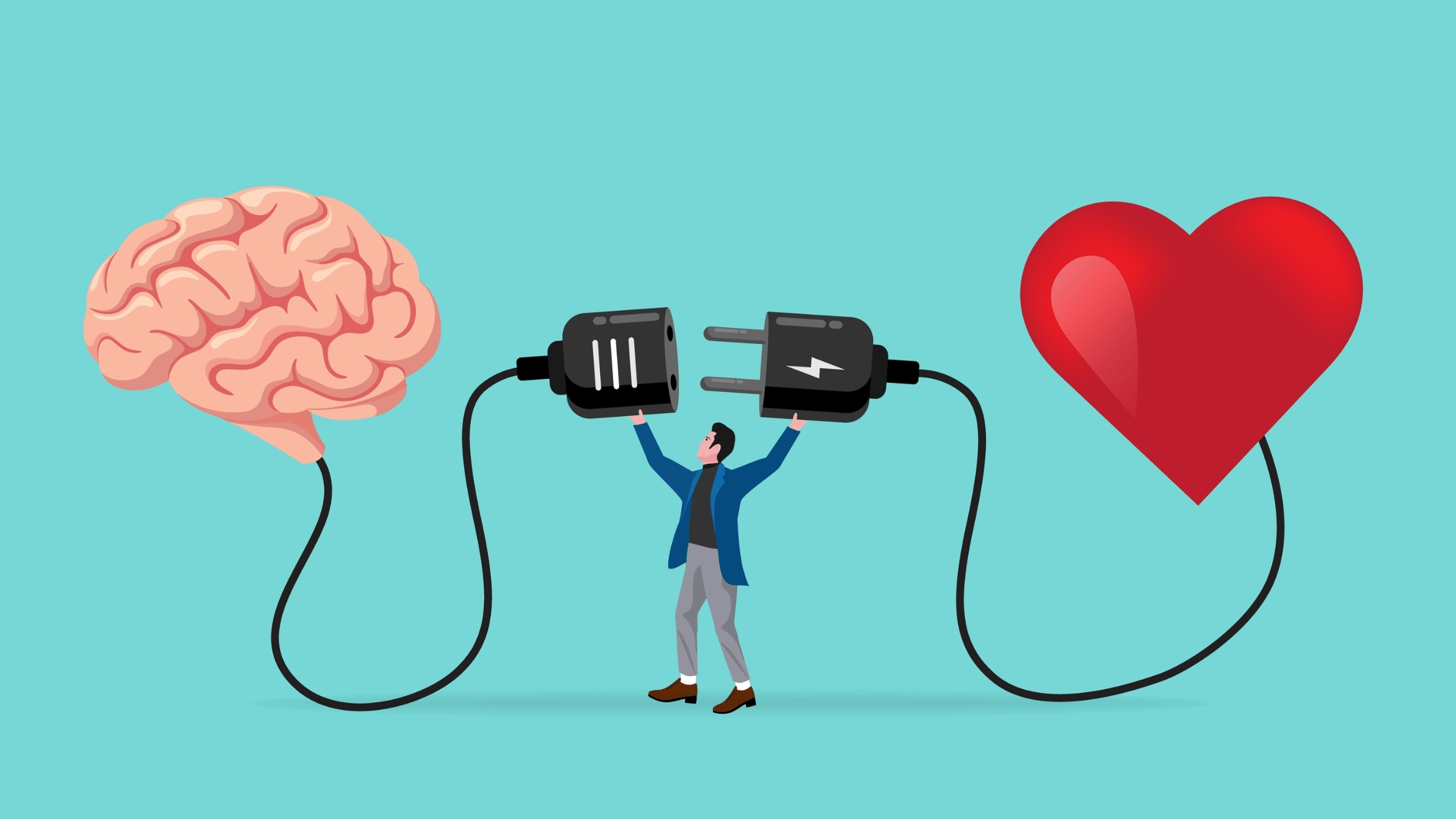You may have heard people being described as book smart or street smart, but another type of intelligence may matter just as much as your IQ, if not more. Emotional intelligence (sometimes called EQ) affects how well you understand yourself and how effectively you interact with the people around you. When you’re on the job site, having a high EQ can mean fewer conflicts with coworkers, more opportunities for advancement, and projects that run smoothly and efficiently. The best part is that emotional intelligence is a skill you can work to improve, just like any other.
What is emotional intelligence?

Simply put, emotional intelligence is the ability to understand and manage your emotions and recognize and understand the emotions of others. Wondering where you stand? People with low EQ tend to be easily upset, frequently feel overwhelmed by emotions, struggle to be assertive, and often feel misunderstood. On the other hand, people with high EQ can stay calm (even during high-pressure situations), handle difficult people diplomatically and tactfully, and help influence people to strive for a common goal.
While some people may seem naturally emotionally intelligent, anyone can improve their EQ by working on the skills and behaviors involved.
4 components of emotional intelligence
Self-management involves regulating your emotions, especially in high-pressure environments. Dealing with intense circumstances without blowing up or shutting down is a key component of self-management, as is the ability to make decisions in stressful situations.
Note that self-management doesn’t mean ignoring or detaching from your feelings. Even those with strong self-management skills still sometimes feel sad, angry, and frustrated. Developing this aspect of emotional intelligence allows you to recognize your feelings, manage your emotions proactively, and express them appropriately without reacting impulsively or losing control.
Self-awareness describes the ability to look inward and understand your strengths, weaknesses, and motivations. It also involves having a clear understanding of how others perceive you and why.
Self-awareness is a crucial component of emotional intelligence. If you don’t understand your own emotions or the motivations behind your behavior, it can be hard to take responsibility, recognize patterns in your life (good and bad), and form healthy connections with others. Research from Organizational Psychologist Tasha Eurich shows that while 95% of people think they are self-aware, only 10-15% are.
This can have serious side effects on the job site. Data shows that workplace teams with low self-awareness make worse decisions, are less coordinated, and are less able to manage conflict.
Social awareness is similar to self-awareness, but instead of understanding what you feel, you can understand how others think, feel, and act. Someone with high social awareness skills might also be called empathetic because they can put themselves in someone else’s shoes and understand their perspective, even if they disagree.
Reading social cues is also a key component of social awareness. It helps you understand when someone is feeling uncomfortable, bored, or leaving something unsaid.
Relationship management includes the ability to communicate effectively, maintain good relationships, healthily resolve conflict, and cooperate in teams. Working out your differences with others is a particularly useful tool on the job because studies have shown that every unaddressed conflict wastes around eight hours of work time, and every minute counts when that project deadline is approaching.
Why emotional intelligence matters
Unless you live alone in the woods, your life will involve relationships with people: coworkers and other trades on the construction site, friends, family, partners at home, and even customer service personnel when you’re trying to resolve an issue. Understanding your emotions and empathizing with the feelings of others will improve your life in several different ways, some of which may surprise you.
Physical health
Feelings aren’t just in your head; they affect your body, too. Anxiety can make it impossible to eat, stress can raise your blood pressure, and chronic anger can impair your heart’s ability to function, increasing your risk of heart disease.
Building emotional intelligence means regulating challenging emotions rather than flying off the handle, reducing stress, and protecting your heart. Developing your EQ also helps you maintain relationships, which not only gives you a full life but a long one, too. Numerous studies show that close relationships are associated with a decreased risk of all-cause mortality.
Daily performance
Developing emotional intelligence will help you do much more than just understand your feelings. It can help you perform better in virtually every part of your day. Research shows that emotional intelligence can help you think critically, make good decisions, collaborate with others, and cope with stress.
Understanding yourself and others means moving through life with insight and influence—it’s life’s ultimate cheat code.
Social relationships
Being self-aware, socially aware, empathetic, and great at communicating can mean the difference between a life filled with strong relationships and one filled with endless conflict. Having strong, positive relationships is correlated with lower levels of anxiety and depression and higher self-esteem.
Building emotional intelligence

There are several ways to boost your EQ and take advantage of all the benefits of high emotional intelligence. Like strengthening your muscles, becoming more emotionally intelligent will take practice and repetition, but the results are well worth it.
Self-awareness
To increase your self-awareness, try practices like meditation and journaling. A simple ten-minute guided meditation each morning or a few minutes spent recording your thoughts and feelings at the end of the day can help you better tune into your inner landscape and understand yourself.
Empathy
Building empathy is an effective way to become more emotionally intelligent. Practice putting yourself in someone else’s shoes—anyone, from your surly foreman to the smiley woman who runs the coffee truck. Try to imagine what their life experiences, perspectives, feelings, and desires might be. Studies also show that reading fiction can help you become more empathetic by allowing yourself to inhabit someone else’s life story, so if all else fails, pick up a good book!
Feedback
It can be challenging to accurately evaluate your EQ and identify areas for improvement. Instead, ask a trusted friend for feedback about your blind spots—specifically active listening, social skills, and social awareness. What are you already great at, and what can you work on? Acknowledging your limitations and taking accountability for areas where you might be falling short is a great way to improve your emotional intelligence.
EQ for life
Feelings have long been dismissed as flimsy, fleeting things. But research doesn’t lie—being adept at identifying and managing your feelings can make you decisive, level-headed, calm, and happy. Noticing the emotions of people around you helps you become a good friend, a great partner, and a promising prospect for promotions. Strengthening your EQ through empathy practice, mindfulness, reading, and soliciting feedback is worth the investment.



3 comments